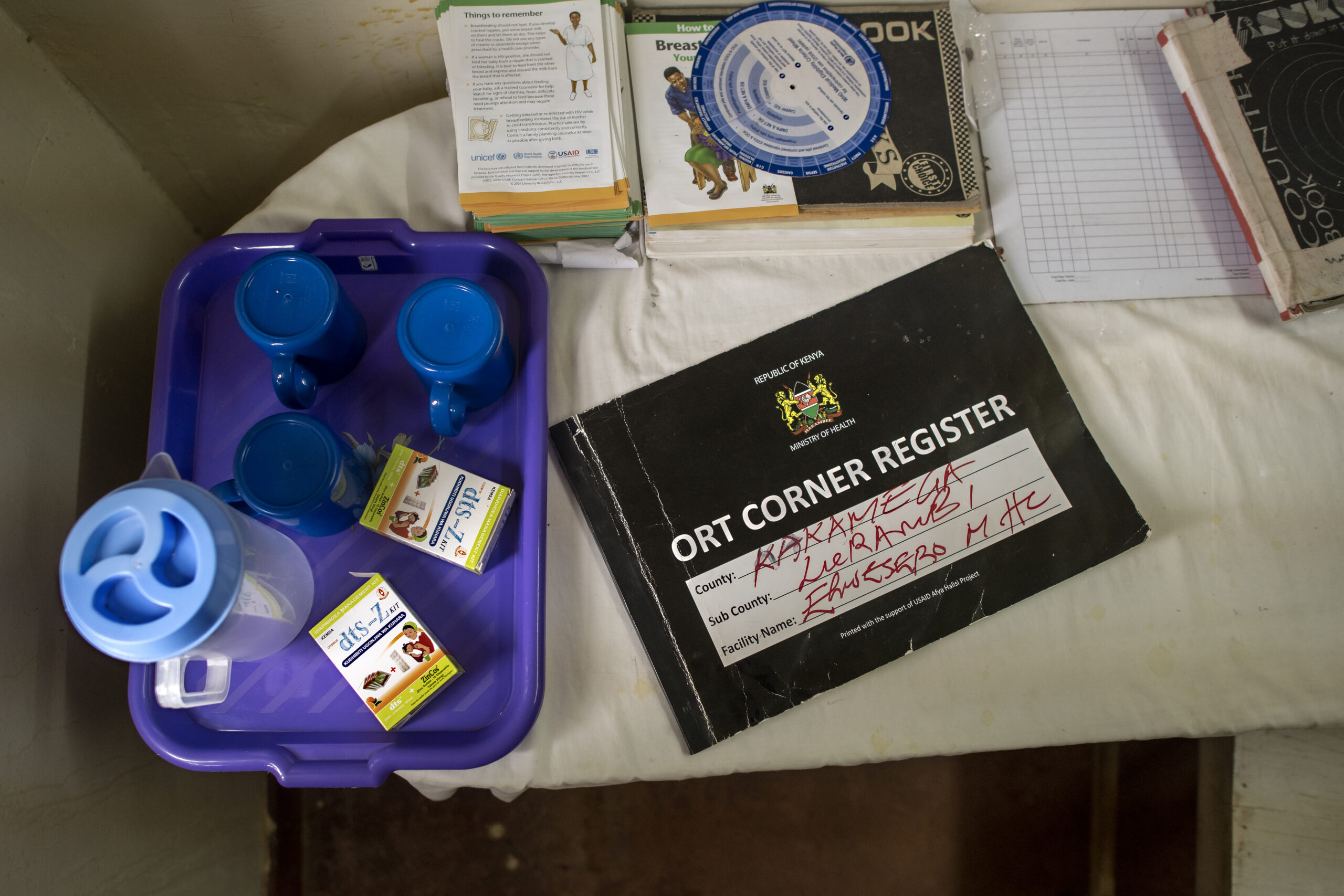
ORS – The Magic Solution for the Treatment of Diarrhea and Dehydration in Kenya and Beyond

A pitcher, cups, and co-packaged ORS and zinc awaits patients at an Oral Rehydration Therapy (ORT) corner at Elwesero Model Health Clinic in Kakamega, Kenya. Photo: PATH/Tony Karumba.
According to World Health Organization (WHO), diarrhea is one of the major causes of death among children under the age of five worldwide. Every year, 1.7 billion cases of diarrhea are reported among children less than five and around 525,000 die.
More than half of diarrhea-related child deaths are attributable to undernutrition, which is the underlying cause for most deaths associated with severe infections. In Kenya, diarrhea is responsible for one out of 10 preventable deaths among children under the age of five, which equates to approximately 10,600 child deaths annually (WHO, 2015).
Management of diarrhea in children remains a top priority for caregivers. It is critical to decide on an appropriate treatment for diarrhea, especially for infants and children. Most of the children who die each year from diarrheal dehydration can be saved by simple oral rehydration therapy (ORT) making oral rehydration solution (ORS) the foremost cost-effective method of health intervention. ORS is a sachet which, when mixed with clean water, can be used within the comfort of the home. More than 50 million children’s lives have been saved by ORS since its creation 25 years ago (WHO).
In Kenya, the government initiated and established ORT corners at health facilities to help manage diarrhea and dehydration. The ORT corners are designated areas that are fully equipped for service provision and overseen by qualified staff who are experts in the management of diarrhea and ORT therapy.
The ORT corners were set up in line with the ORT guidelines developed by the Ministry of Health in 2013. The guidelines mandated the establishment of ORT corners in every health facility that treats sick children on an outpatient basis. It serves as a standards document to facilitate rapid scale-up of ORT corners while enhancing the quality of treatment of sick children with diarrhea in Kenya. It includes classification and treatment of children with diarrhea, monitoring and evaluation, and sustainability of functions and services.
ORT corners are a well-developed, low-resource method that combines rehydration for children with counselling for caregivers about proper handwashing, sanitation, and other solutions to combat diarrhea. ORT corners are a strategy that is easy to implement and endorse for a more effective response to managing effects of severe diarrhea.
Importantly, according to WHO’s Integrated Management of Childhood Illness (IMCI) guidelines adapted by Kenya’s Ministry of Health, zinc tablets are a key follow-up step for caregivers to deliver at home for 10 days as the child recovers. Too few children who need it receive ORT, and even fewer receive zinc. Co-packaged ORS and zinc, now on Kenya’s Essential Medicines List in line with WHO, could improve awareness, uptake, and access.
Stakeholders in the health sector should collaborate to ensure both ORS and zinc are available in primary care sources across the country. Moreover, they should formulate and publicize appropriate messages tailored to manage any perceptions that may hinder the uptake of ORS and zinc sulphate tablets. Browse DefeatDD’s co-packaged ORS and zinc advocacy resources for more information.


